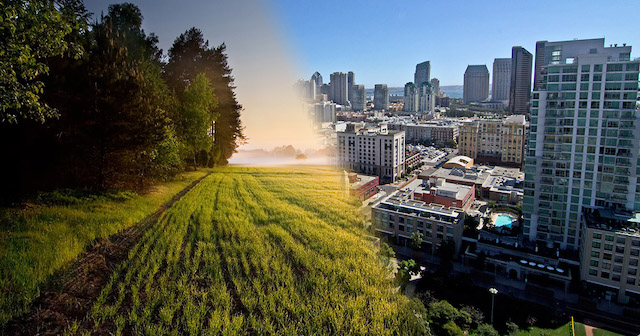Opinion/Editorial
OUR TROUBLE IN GETTING ALONG
Acculturation is an anthropological word used in the discipline to describe the assimilation of one culture into another. Usually, this term is used when discussing a smaller group trying to be a part of the larger. Acculturation is one of the hardest social adjustments to accomplish, and it’s been that way throughout our known human history. Race separates us, and the struggle to accommodate the differences among humans of all races is ever ongoing and not about to end soon. The north and the south cultures dividing the United States are other examples, as are the neighborhoods in so many downtown areas of large cities. The Irish live in one neighborhood, while across a single street a whole Italian culture lives too, although the two neighborhoods, over hundreds of years, remain fully and almost totally separated. This difficulty to acculturate extends throughout the United States, in each and every geographic region of any size. It is played out all the time and, in every venue, from religion to politics and on into economics and more.
It’s also exemplified by the inability of the rural and urban populations to acculturate at all. The greatest admitted, and sometimes not so admitted, expressed reason is of not wanting to acculturate at all. That determinant and the stubborn reason is given as the real reason the rural and urban cities, villages, towns, and unincorporated regions do not want to have much of anything to do with the more densely developed areas. This goes all the way back to Roman times and likely before.
The Town of Linn is a perfect example of what I call this state of co-existence. I refer to it as the never-ending range war. Range wars have gone on in America since the beginning of the country. At one time it was almost impossible to get around back in the eastern states because the rural owners outside the developed areas fenced their land and began extracting ever-increasing tolls from those who wanted or needed to cross their property. In the old west, as we’ve come to know the eighteen-hundreds, the range war was between ranchers and farmers, who mostly received their lands in grants or almost unpaid leases, literally warred against what were called squatters…and those who wanted land too, but had come along too late to be a part of the vast land grant system that pervaded the nation for a period of time. Today, the Town of Linn is a perfect example of one of these old range wars. The farmers own 85% of the land. The residential population owns only 15% of the land but makes up 85% of the population, as well as pays the lion’s share of the town’s tax revenue. Through almost all of the recorded time, the rural populations have felt that its owners are the true owners and stewards of the land, while those who do not farm, or ranch are the ‘renters.’
The United States is a democracy. The urban areas have more voters, by far than all of the rural population. Only 60 million people are considered rural in this country (that’s 19 percent of the total population). You can quickly deduce the elements that make up the discontent that has been running through our culture since its inception. The solution the rural people have turned to has involved using the political system to parcel out voting areas where the rural communities can still have considerable power. The creation of senates, where representative votes are not distributed by population size (one Senator in California has 20,000,000 constituents, while one senator in Wyoming has 250,000) has been another way.
The State of Wisconsin is 60% democratic but the state House and the Senate are composed of representatives who are, for the most part, republican (33 senators, of which 20 are republican and 99 representatives with 60 being republican). There is a great amount of negative emotion roiling across the state like waves on the surface of a windy rough ocean, and there is little or no subsidence or peace. The acculturation is not happening, but then it never has been. The models for the future are pretty much irrefutable, in that one day soon the urban population will grow to such an extent that no amount of gerrymandering will allow the rural dwellers almost any representation at all, and that will be another time of high emotion. Possibly, although I don’t hold out a lot of hope, simply knowing this information might help. Scientific knowledge, those things learned before we came along, can certainly help, but will it? We are not living in a time of scientific believability.







